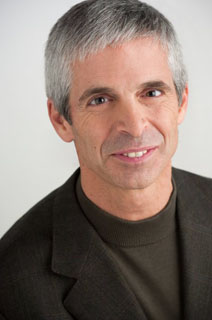Podcast: Play in new window | Download
 I want to thank all of you for the great response that you’ve given me to the doctor show. After practicing integrative medicine for over 30 years now, it is my mission to get the word out to a larger number of people that I can see in my day-to-day practice.
I want to thank all of you for the great response that you’ve given me to the doctor show. After practicing integrative medicine for over 30 years now, it is my mission to get the word out to a larger number of people that I can see in my day-to-day practice.
Your questions have been overwhelming and I am trying to get answers back to you as fast as I can.
I want to honor all of my listeners and readers. You have shown me the value of being on Twitter and on Facebook. I had not been on either of them for a while and now I am on them regularly. I plan to put out at least two twitter feeds per day and to be updating my Facebook page on a regular basis. The promise always give you interesting things to learn about in my feeds.
Because of your strong encouragement for me to get my word out, in this issue I review some of the very interesting articles that I have been reading to send out to you on Twitter and Facebook.
You can listen to the podcast for details but here are the links:
Surprising Connections Between Our Well-Being and Giving, Getting, and Gratitude
“Berry” Good for Your Heart!
The Not-So-Sweet Side Effects of Soda
Low blood lead levels linked to lower IQ in Italian kids.
Chemical tied to intergenerational obesity
Now onto this issue’s interview. For the next few sessions we will be shifting our focus to the role of gluten in human health.
For years doctors have run Celiac Apply the Panels on patients and if this one test is negative, told the patient they don’t have to worry about eating gluten. However a lot of people have realized that they have a sensitivity to gluten even though they don’t have classical Celiac Disease.
What to do about these people to obviously have a sensitivity to Gluten. Finally, a new category of gluten diagnosis has been made and it is called Non-Celiac Gluten Sensitivity.
How do we diagnose such patients? How do we treat them? Can they get by with just reducing gluten or must they avoided altogether? What are the symptoms and signs of such a gluten sensitivity?
These are questions that my patients bring to me every day. There are an enormous number of people who have what we call Non-Celiac Gluten Sensitivity. In my practice I have seen lives change by the recognition and treatment of this condition.
This is the first of three podcasts on the subject of gluten sensitivity. My special guest that I interview is Dr. Tom O’Bryan, who has spent the last many years studying and teaching the importance of the recognition of gluten sensitivity. He is an internationally recognized speaker and workshop leader as well as a clinician par excellence in treating chronic disease and metabolic disorders from a functional medicine perspective.
In this podcast we talk about the following:
1. Gluten is a family of proteins not a single protein.
2. There is a groundswell movement of people recognizing their own gluten sensitivity.
3. People are recognizing that everything from migraines to seizure disorders might be helped by a gluten free diet.
4. It is only recently that gluten sensitivity is being recognized by traditional medicine.
5. The gluten concentration in wheat has gone up to 50% due to the plant being hybridized. From a commercial perspective, it’s quite valuable to have a high gluten content in your bread.
6. The word gluten means glue.
7. Dr. Fasano, a world-famous gluten researcher has said “no human can digest the gluten, in wheat, today”.
8. Immune tolerance makes it so that some people are able to eat gluten and not get sick. However, in a person with a compromised immune system, this could be the straw that broke the camels back
9. Gluten sensitivity is much more than just digestive problems. For every one person that has got digestive symptoms from gluten, there are eight that don’t. The symptoms are in some other part of their body.
10. Dr. Fasano estimates that 30% of the population has a sensitivity to gluten.
11. There are now new blood tests for gluten sensitivity, and these can be very helpful in diagnosis.
12. A simple definition of gluten sensitivity is: if you go off gluten you feel better! This type of challenge can be good for people who do not want to do the blood test.
13. Dr. O’Bryan gives us the analogy of the lining of the small intestine being like a shag carpeting. If you have gluten sensitivity that shags wear down and food and nutrients cannot be absorbed well. The medical words for the shags in micro villi.
14. For proper diagnosis of celiac disease, a patient will have an endoscopy and biopsies of the intestines will be done to see if the shags on his lining are worn down. This can be seen under the microscope.
15. People with their shags borne down, which is called villous atrophy, had a 39% increased risk of dying early in life of heart disease cancer or something else.
16. If the villi were not worn down but you just had a positive celiac blood tests increased risk of dying was 35%. This is about the same.
17. Gluten sensitivity causes inflammation in the intestines. This in fact can be a hidden cause of elevated CRP in people with heart disease.
18. Fortunately we now have a new lab called Cyrex labs which contest for other anybody’s rather than only alpha gliadin, the protein that is tested in a traditional celiac panel.
19. The testing at Cyrex labs is able to look at 10 different breakdown products of gluten.
In the next podcast we will go on to discuss the use of the Cyrex tests, where to get them and what they can tell us.
You can see more about Dr O’Bryan on his website.
After my interview with Dr. Tom O’Bryan I go on to answer some of your questions that you have emailed to me.
In this show I answer questions about:
1. Acid Reflux
2. Epstein Bar Virus and Chronic Fatigue Syndrome.
3. Vitamin D Dosages I recommend for families.
4. Calcium and vitamin D.
5. Vitamin B 12 and vitamin D deficiency.
I will get to more of your questions in future issues as best I can.
Please send in your questions or leave comments on my site so that I know you’re out there listening! Also please RATE me on iTunes so we can spread the word on the importance of Integrative Medicine for our health. Also you can follow me on Twitter and on Facebook. Now that I’ve gotten my Facebook fan page set up it is so much easier.
About Dr. Soram Khalsa
As an MD, Dr Soram specializes in Integrative Medicine combining diet, nutrition, acupuncture, herbs and nutrition. Visit Dr Soram’s Healthy Living Store where you’ll find high-quality nutritional supplements:





